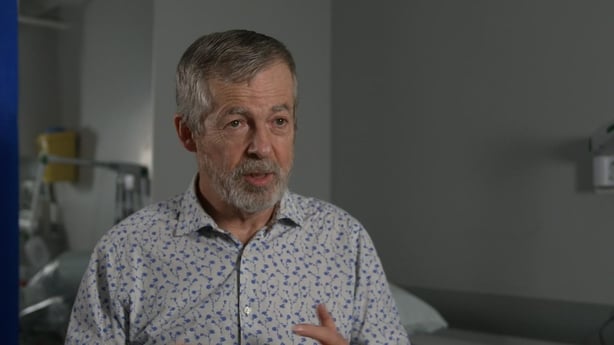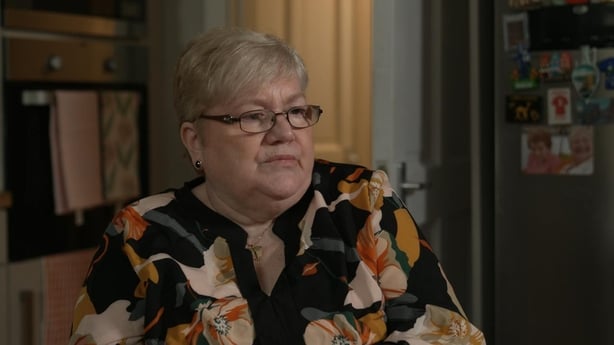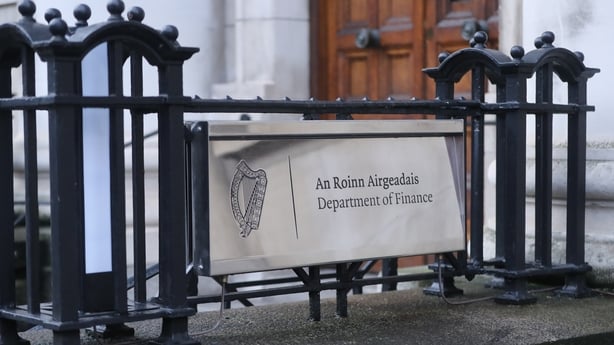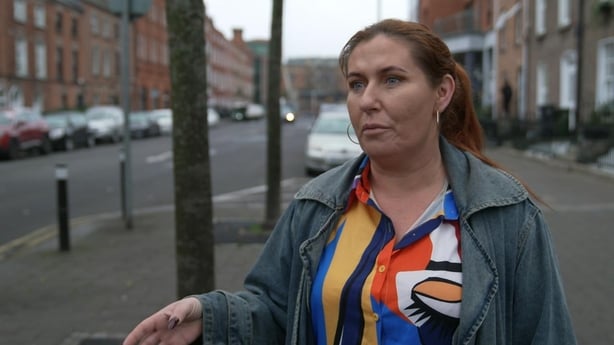It's a busy clinic in Dublin’s north inner city with a full patient list that everyone seems to love, yet it is facing closure.
Based in a sleek, modern, grey HSE-owned building in a community scarred by drug addiction, poor health, and gangland crime, the Summerhill Family Practice currently has 2,613 patients on medical cards.
"We are looking at actually handing out notice to all the staff, including the GPs, and closing the practice down," said Dr Austin O’Carroll, director of GP Care For All, a charity which established and operates the clinic employing 16, including part-timers.
A clarification of tax law issued by the Revenue Commissioners last year and implemented from January is at the root of the clinic’s problem.
Under the measure, its doctors, who are hired – and taxed – as PAYE workers, will also be taxed as self-employed, on payments made by the State for medical-card patients. Since the clinic opened, that money has been assigned by the doctors (untaxed) to the charity to fund the running of the clinic.
The charity describes the measure, which the Department of Finance stressed is not a new law but rather a clarification of existing law that has been implemented since January, as a form of "double taxation."
It will "make our operation unviable," said Dr O’Carroll.
The Summerhill Family Practice has been in existence since 2016.
"There was no general practice here in this area before we started," said Dr O’Carroll, noting that the patient list includes "a huge level of social complexity."
"We have many homeless patients, we have many people who use drugs. We have high rates of migrants and high rates of people from the Roma community."
Over 900 children are on its patient list.

"A huge amount of them come from the foster care system. So, they come with a lot of trauma, they come with a lot of issues, generally mental health issues," says Paula Kearney, a board member of the Inner City Organisations Network (ICON), which is alarmed at the threat to the clinic’s existence.
The clinic was established under a give-and-take model. In return for its GPs transferring their medical card patient lists - and the rights to the money the State pays for these patients – to GP Care For All, the charity covers the costs of running the clinic, including wages for doctors, nurses and administrative staff.
That means that the Summerhill Family Practice doctors do not have the financial and administrative headache of setting up and managing a GP business.
"The charity looks after the staffing, the HR, the finance, the legal, the property. The clinicians can then focus on being clinicians," said Kevin Kenny, chairperson of the GP Care For All.
Patients like local resident Eileen Fagan, a retiree from the hospitality industry, are worried.
She values the clinic because it is in her neighbourhood - she has no car – and because of how they deal with her and her husband John, who has dementia.
"They're very kind. They understand him, they treat him as normal," says Ms Fagan, who suffers with chronic pain.
Older people in the area will, she says, be "lost without it... Where are they going to go? Only to a hospital and be lying in a trolley... being kept in for 17 or 18 hours."

One of Eileen’s daughters recently phoned around some clinics and GPs near Summerhill seeking an alternative. "They're all full. They're all full," Ms Fagan said.
Prime Time also checked GP availability, phoning 13 GP clinics in the north inner city. Twelve said they were not accepting new medical-card patients, one said maybe.
While training places for GPs have increased in recent years, they have not kept pace with rising demand due to population growth and extended medical-card availability to children under 8 years old, and others.
In 2021, the Irish College of General Practitioners reported that 74% of its members had closed their practice to new private patients "because they are unable to employ another GP or replace a retiring GP."
Some 79% were not accepting new medical card patients "because they are at full capacity."
There is financial help available from the State for GPs setting up in disadvantaged areas but it carries conditions.
Attracting GPs to invest in establishing a practice in an economically disadvantaged area – especially one in the centre of Dublin where property prices are high - is difficult.
Building up a list of medical card patients takes time, and if the surrounding community is impoverished, there is little opportunity to secure early cashflow from privately paying patients.
Working in an area of deprivation also carries other stresses that can discourage doctors.
"You've a lot more people coming in with social problems. You will have more interactions where patients are angry, particularly if they're looking for medications that are addictive," Dr O’Carroll said.
The tax regulation which threatens the Summerhill Clinic has already thwarthed GP Care For All’s plans to expand into another disadvantaged area, Dublin’s Finglas West.
Efforts to resolve the issue
"We have the money, we got that from some philanthropic sources, but a large portion from the HSE, we have the premises. We actually had a doctor. We were due to start last July. I had to tell the doctor to go find work elsewhere," said Dr O’Carroll.
Various state agencies have been lobbied in recent months by GP Care For All and opposition politicians. The Department of Health and the HSE have put their support for the charity’s services on the record.

And yet, while any amendment that would exempt charities from the relevant tax provision would apply to only the handful of medical clinics that are run by charities, the Department of Finance appears steadfastly opposed to any amendment.
In a written response to Social Democrats TD, Roisin Shortall, Minister of Finance Jack Chambers in July rejected any exemption for the charity that runs the Summerhill clinic saying, "...it would not be appropriate for tax legislation to seek to accommodate all contracts and business practices in the sector."
"I don't want to use the word 'runaround’," said Mr Kenny. "We approached... the Minister of Finance, because it was his Act which created this situation. Revenue have made it clear that they apply policy, they don't create policy. We were on to the Department of Health [and the] HSE... their reaction was; ‘it is a health issue, but it's the Department of Finance’s to solve,’" he said.
The Revenue Commissioners told Prime Time that "the clear legal position is that the income arising under a GMS contract is that of the individual GP, and that position does not change in circumstances where the GP enters into separate contractual arrangements to, in effect, treat the income as that of a medical practice."
It also said that it "provided a lead-in time to allow GPs and medical practices to make any necessary changes to their arrangements to comply with the law."
The Department of Finance told Prime Time on Monday, "while the Minister for Finance is conscious of the difficulties being experienced by GP practices, he must be cognisant of existing legislation and contract law."
"As the core issue concerns the contractual arrangements between individual GPs and the HSE, it would not be appropriate to propose changes to tax legislation which would treat income belonging to an individual contracted GP as income of an incorporated charity."
In a statement, the Department of Health told Prime Time that "matters relating to the interpretation of tax law fall under the remit of the Minister for Finance."
"Notwithstanding this, the Department of Health and the HSE have held a series of engagements with GP Care For All since September... to identify ways of ensuring [the charity] is enabled to continue to deliver services on a sustainable footing."
"This engagement is ongoing," the Department said.

"We feel the simple answer lies in what was done regarding the Gambling Act," said Mr Kenny, chairperson of GP Care for All, referring to certain exemptions in the Gambling Regulation Act for charities which use lotteries to raise funds.
"[The Gambling Act] has been written around to exempt charities, we feel that the Minister for Finance could easily exempt charity-operated medical practices, of which there is a very small number."
In Summerhill, local man, and patient of the clinic, Matthew Ralph, said "if this closed down, the people in this area will be stuck. Old people, young people, people in addiction, people, like myself, in recovery."
He says the care he receives at the clinic goes beyond medical.
"I'm in further education now, my doctor here encouraged me to go on to further education, adult education. And she pushes me - and she accommodates me if I have an appointment early, so I can get there on time - which you don't get at many places."
Paula Kearney from ICON despairs at the idea that the Summerhill clinic may close.
"When there’s the service already there, why take it? This community has lost enough already, so why take yet another really important and valuable service from it?"
The 12 November edition of Prime Time on RTÉ One television at 9:35pm will include a report on this issue by producer Lucinda Glynn and reporter Paul Murphy.






